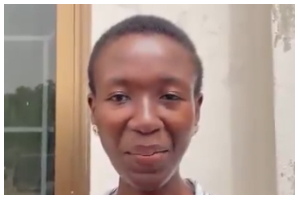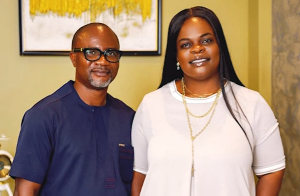"Age cheating has become a cancer to African football,” says Medhat Shalaby, media officer of the Egyptian Football Association. "Junior tournaments are running the risk of being inconsequential to the development of African football. Countries like Nigeria, Ghana and Cameroon were fond of fielding over aged players in international youth tournaments."
Mr Shalaby’s statement came on the heels of a stunning revelation by former Nigerian international player, Adokiye Amiesimaka, who claimed that Nigeria’s current under-17 captain, Fortune Chukwudi, is about 25 years old.
Chukwudi is at least nine years older than he says he is, according to Mr Adokiye, who’s now a lawyer, in a column in a national newspaper. The player has no business playing in the current FIFA U-17 World Cup, he says.
Fake identity The problem is not restricted to Nigeria, says the Egyptian Football Association. Mr Shalaby says most African countries allow their players to use fake identity particulars to make them eligible for junior tournaments. It’s a practice that is set to be counterproductive:
"Age cheating is destroying football development in Africa. It makes tournaments useless because some players must not be playing because they are too old.”
In their bid to curb age cheating in football, Football’s world governing body (FIFA) introduced MRI testing to determine the true age of players representing their various nations at the current Under-17 World Cup in Nigeria. In a trial run, 15 out of the Nigerian team’s 32 players failed the test, causing a major controversy.
Arnold Pannenborg, a Dutch journalist and commentator on African football, agrees with FIFA policy:
"Many, if not all African countries 'cheat' with the age of their youth players. We don't have to pretend that it doesn't happen because really, it does. And a lot too. Several high-placed officials within the various associations and the ministries have acknowledged that they are deliberately creating ‘football ages’, so that older players are still eligible for the U-20 and U-17 teams."
Only reliable means Mr Pannenborg adds that "The tests are currently the only reliable means of determining the ages of players. The recent proposal by the Nigerian NFFs Chairman Sani Lulu to call the parents of the players to ask them the players' ages is ridiculous.” “Nobody will ever believe that. We live in an age of technology and we should make use of it. Otherwise, what's the point of playing such tournaments if older playing are taking part?"
However, the question remains: How could Chukwudi have escaped the MRI test?
“I really wonder whether the MRI test was done on each and every one of the players,” says Nigerian Lawyer Adokiye. “If, indeed, a thorough exercise was conducted, then FIFA must review the procedure."
Football administrators believe age cheating took a leap after the commercialisation of the game in Africa. Clubs and footballers' agents have been accused of encouraging players alter their age so that it becomes less hard to obtain contracts with European clubs looking out for young talents.
Soccer News of Monday, 9 November 2009
Source: Africa Online Media/PM news












